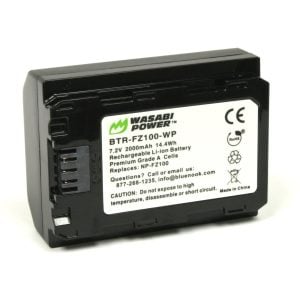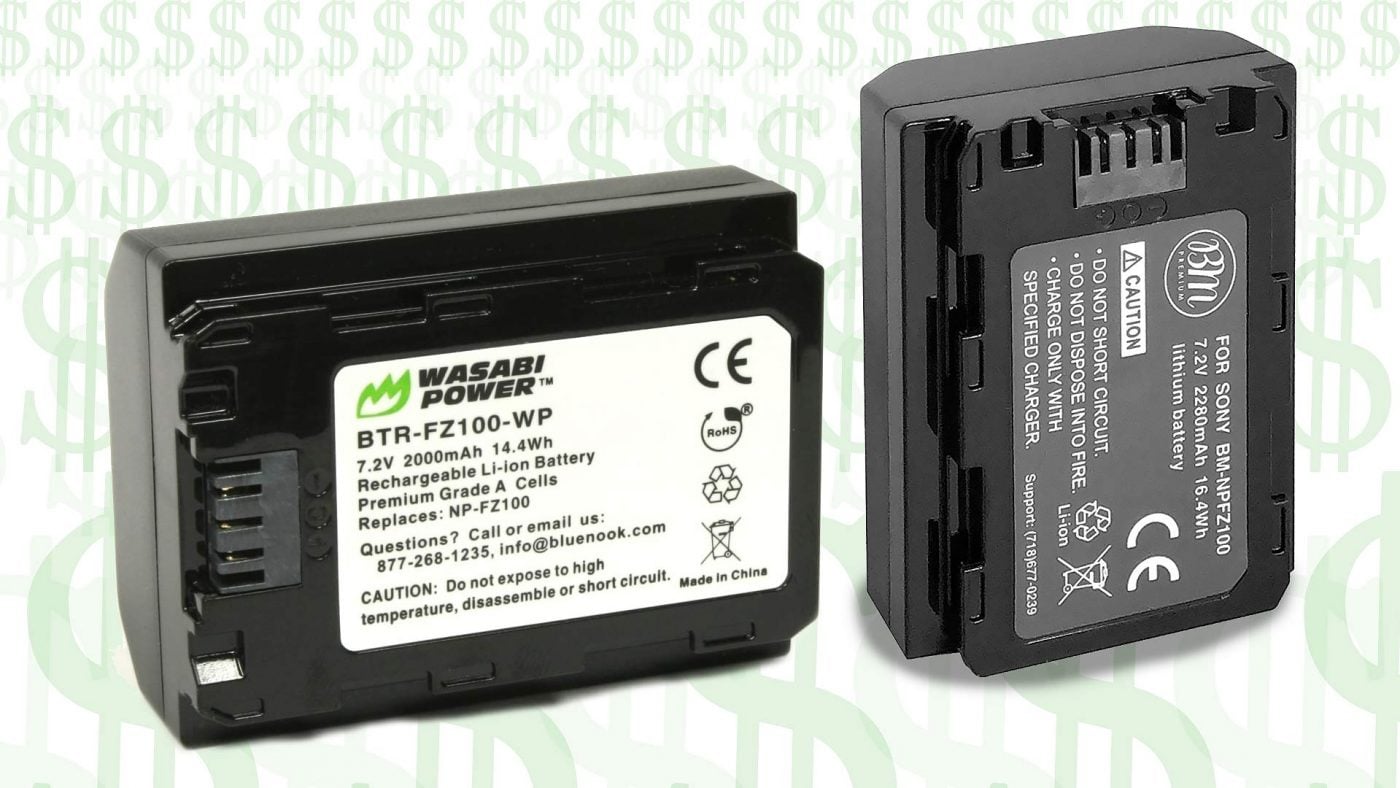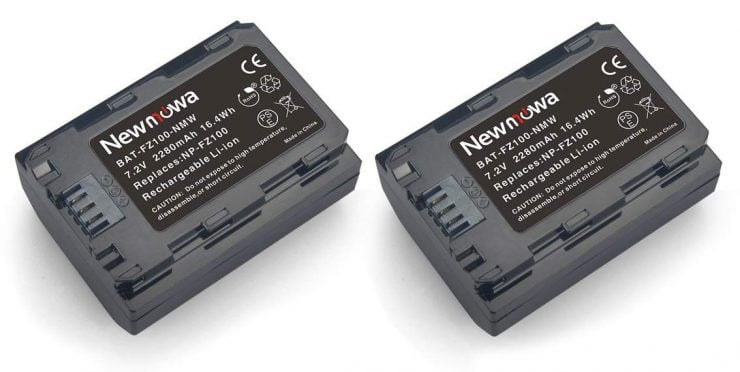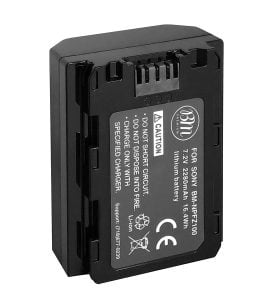Mirrorless cameras are truly excellent these days, but they do tend to be more power-hungry than SLRs. Sony’s a9, A7RIII and a7III cameras have better battery life than earlier models, due in part to the new Sony NP-FZ100 batteries, but unfortunately, these batteries are not cheap, and 3rd party alternatives have been slow coming to the market. However, they’ve finally arrived, and at just over half the price of Sony’s $78 battery. A quick search for the battery on Amazon turns up several different Chinese brand batteries on the market.
The New Options

Wasabi Power is a relatively well trusted name at this point, and they sell single BTR-FZ100-WP batteries for $26.99 and sets of two (with a charger) for $50.99. We have used their batteries in Canon DSLRs and Sony a6000 series cameras with few problems1 I’ve had no problems with the batteries for Canon. The Sony a6000 batteries lasted for a couple of years before showing signs of fatigue, but did wear down before the OEM. But they were a fraction of the price of the OEM. . Wasabi’s batteries claim to be a second generation, with no compatibility issues with grips or chargers, but they’re also listed at only 2000mAh (14.4Wh), while the OEM Sony are 2280mAh (16.4 Wh). While it may be a little disappointing to get less power (about 88% of the power), I’m encouraged by the company’s honesty about the lower power rating.
It appears that Newmowa, also a known brand, is only selling their batteries in twin packs with a charger, but the price is similar at $. Although these batteries are listed at 1280mAh, early, unsubstantiated reviews report that they actually only last about 72% as long2 This is according to a reviewer “Caleb Pike” who says that the Sony battery records 4K video for 187 minutes, while the Newmowa lasts for 135 minutes. I can’t attest to the reliability of this statement. . There are also reports of inconsistent performance and compatibility, with Newmowa stating that the batteries in question were first batch. It’s unclear whether they’re now selling a second batch.
BM Premium is also selling their batteries singly for or in a dual pack for $46.99, also with a charger. I’ve never used their batteries, and there are no reviews on Amazon yet. There are, however, some grounds for suspicion: they list compatibility with the Sony A9S and A9R… two cameras that don’t actually exist. They also list the battery power capacity at 2280mAh and 16.4Wh.
Additionally, several other unknown (to me) brands are selling these things. Enegon sells a pair for $79.99. Power2000 is selling single batteries for $37.95 while making the dubious claim that they hold 2400mAh. A completely generic pair of batteries can be had from another seller for $52, if you are willing to wait for shipping from China.
It seems likely that all of these batteries are coming from the same factory and then being re-branded and sold by different companies, so perhaps it’s foolish to expect better performance out of any particular brand. However, knowing that Wasabi is selling a second batch of batteries does make me lean that direction.
Are they Worth It?
“You’ve just spent thousands of dollars on a camera, so why would you try to save $40 on a cheap battery?”, someone is going to say. The fact is, I’m a photographer, and I have no shortage of things to spend money on. Lenses, grips, flashes, triggers, tripods, hard drives, memory cards, software, studio gear, video rigs, bags and straps, travel… the list goes on an on, and I occasionally need to eat, too. If I can save a significant amount of money and get similar performance, why not?
So is it a significant amount? If we assume that these batteries have about 80%3 Wasabi claims 88%, the info from the Amazon review claims 72%. the capacity of Sony batteries, they represent a significant savings, but not a dramatic one: the Sony batteries cost about $4.76 per Watt-hour, while the 3rd party will cost around $3.43 per Watt-hour. That’s about 28% less.
Compare that to the price of the Canon LP-E6N (13Wh), which cost $69 on Amazon at the moment ($5.30/Wh). There are a countless brands that sell different replacement batteries, and many of them claim higher capacity than the OEM. PowerExtra, for example, sells packs of two 19.2Wh batteries for $22, total. That’s $0.57/Wh, a very dramatic savings, and even if the batteries only have the same capacity as the Canon4 Most reports say they last longer, and take longer to charge. , they’d still be $0.85/Wh., less than 1/5th the price of the Canons. These NP-FZ100 clones have a long way to drop in price before they come close to that sort of savings.
So, are the 3rd-party batteries for Sony worth it, yet? If you’re a professional event shooter or photojournalist, or any other professional for whom reliability is more important than a modest cost savings, then no… probably not. However, if you’re doing product photography, or casual family photography or portraits and you have time to change batteries if necessary, then go for it. My general practice has been to keep 3rd party batteries in my camera, and keep the OEMs in my bag as reliable backups. For the moment, I’ll continue to live with my Sony batteries and wait for 3rd party prices to drop.





